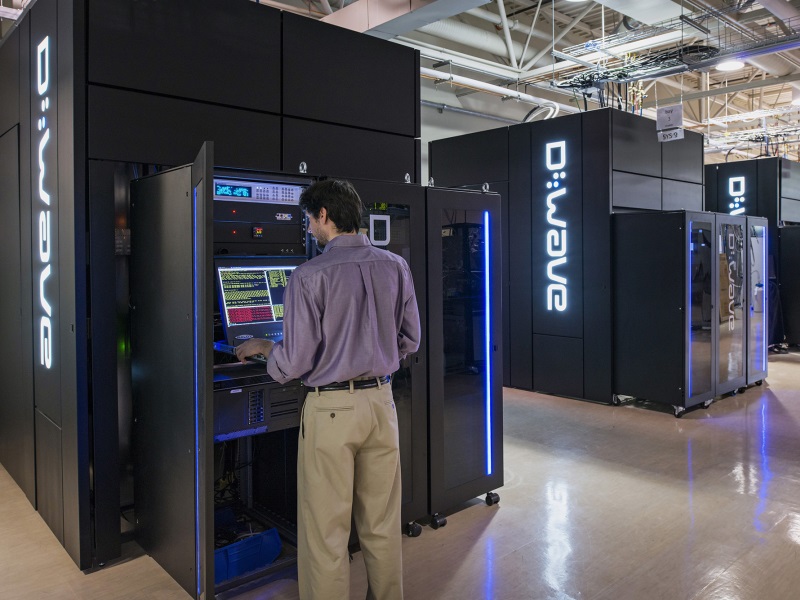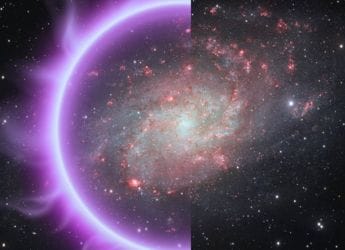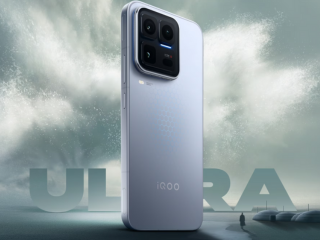- Home
- Science
- Science News
- Google, Nasa Announce Installation of New D Wave 2X Quantum Computer
Google, Nasa Announce Installation of New D-Wave 2X Quantum Computer

A joint project between Google, Nasa, and the Universities Space Research Association, QuAIL is the hub for an experiment to assess the potential of quantum computers to perform calculations that are difficult or impossible using conventional supercomputers.
Beginning with the D-Wave 2X quantum computer, Nasa's QuAIL team is evaluating various quantum computing approaches to help address challenges faced by the US space agency.
Initial work focuses on theoretical and empirical analysis of quantum annealing approaches to difficult optimisation problems.
Quantum annealing is a quantum-mechanical paradigm to solve combinatorial optimisation problems.
"Working with the D-Wave processors has helped us develop and fine-tune models of quantum annealing," Google's Hartmut Neven, head of the Quantum Artificial Intelligence Lab, said in a statement.
"We look forward to the continued advancements coming from each generation of D-Wave systems," he added.
According to Nasa, the research team is also studying how the effects of noise, imprecision in the quantum annealing parameters, and thermal processes affect the efficacy and robustness of quantum annealing approaches to these problems.
Over the next five years, the team will also develop quantum AI algorithms, problem decomposition and hardware embedding techniques, and quantum-classical hybrid algorithms.
"The hope is that quantum computing will vastly improve a wide range of tasks that can lead to new discoveries and technologies, and which may significantly change the way we solve real-world problems," Nasa added.
Get your daily dose of tech news, reviews, and insights, in under 80 characters on Gadgets 360 Turbo. Connect with fellow tech lovers on our Forum. Follow us on X, Facebook, WhatsApp, Threads and Google News for instant updates. Catch all the action on our YouTube channel.
Related Stories
- Samsung Galaxy Unpacked 2025
- ChatGPT
- Redmi Note 14 Pro+
- iPhone 16
- Apple Vision Pro
- Oneplus 12
- OnePlus Nord CE 3 Lite 5G
- iPhone 13
- Xiaomi 14 Pro
- Oppo Find N3
- Tecno Spark Go (2023)
- Realme V30
- Best Phones Under 25000
- Samsung Galaxy S24 Series
- Cryptocurrency
- iQoo 12
- Samsung Galaxy S24 Ultra
- Giottus
- Samsung Galaxy Z Flip 5
- Apple 'Scary Fast'
- Housefull 5
- GoPro Hero 12 Black Review
- Invincible Season 2
- JioGlass
- HD Ready TV
- Laptop Under 50000
- Smartwatch Under 10000
- Latest Mobile Phones
- Compare Phones
- iQOO 15 Ultra
- OPPO A6v 5G
- OPPO A6i+ 5G
- Realme 16 5G
- Redmi Turbo 5
- Redmi Turbo 5 Max
- Moto G77
- Moto G67
- Asus Vivobook 16
- Asus Vivobook S16 (2026)
- Black Shark Gaming Tablet
- Lenovo Idea Tab Plus
- HMD Watch P1
- HMD Watch X1
- Haier H5E Series
- Acerpure Nitro Z Series 100-inch QLED TV
- Asus ROG Ally
- Nintendo Switch Lite
- Haier 1.6 Ton 5 Star Inverter Split AC (HSU19G-MZAID5BN-INV)
- Haier 1.6 Ton 5 Star Inverter Split AC (HSU19G-MZAIM5BN-INV)

















